Speaking Our Truth: Results from the Third Annual Endometriosis In America Survey
1 in 10 women are affected by endometriosis worldwide. Every year, we conduct the Endometriosis In America survey to learn more about this challenging condition, and how it impacts daily life. Even though endometriosis affects millions of women worldwide, both public awareness and healthcare provider knowledge remain low, and treatment options are limited.
To better understand how endometriosis affects physical and mental health, quality of life, and relationships, we asked more than 1,200 women to share their endometriosis stories.
Endometriosis can affect the whole body
Endometriosis is typically associated with pelvic pain, bloating, heavy bleeding, and painful periods. While these experiences are very really, the impacts of endometriosis go beyond the pelvis. In fact, this year’s survey found that the most common endometriosis symptom was fatigue - affecting 96% of women. Similarly, 9 in 10 have experienced endo-related complications, with bowel and bladder problems being the most common.
Surprisingly, many of our survey respondents have been diagnosed with deep infiltrative endometriosis (endo that has invaded 5+ millimeters beyond the peritoneum). In the past, researchers claimed that deep infiltrative endometriosis was very rare, said to affect as little as 1% of women with endo.
Juggling friendships, family, and romance
While the symptoms and complications of endometriosis can impact many aspects of life, relationships are one area where endo can really take its toll. When faced with constant fatigue, debilitating pain, and unexpected flares, it can be difficult to maintain relationships with loved ones, family, and friends.
47% of women shared that endometriosis has negatively impacted their marriage/romantic relationships. Similarly, 44% cited a negative impact on their non-romantic relationships. (Top 2 responses on 7pt scale)
Endometriosis is wildly unpredictable
Endometriosis symptoms can be unpredictable and difficult to control. And, while surgery is the gold standard for endometriosis treatment, even after surgery, endo symptoms are likely to recur (or come back). Survey respondents rated the effectiveness of past surgeries as low, and 1 in 4 experienced complications from their endo surgery.
When asked, 59% of women say they feel powerless against their endo, and over half feel they’ve been unsuccessful in controlling their pain. (*Top 2 responses on 7pt scale)
Why are we being ignored?
For many endo warriors, one of the most frustrating parts about endometriosis is being dismissed, ignored, or belittled. Sadly, many of our community members have faced this kind of discrimination. One member shared, “I have had endo symptoms since I was 15, and have just been brushed off by physicians and told that my complaints were normal”. Another shared, “My endometriosis was not validated... my pain was written off as just being dramatic!”.
Learning from our regrets
Because treatment options are limited and symptoms are difficult to control, many community members have regrets about how their endo has been treated or managed over the years. While 34%* are happy about their endo treatment decisions, 26%** have regrets about them. *Top 2 responses on 5pt scale **Bottom 2 responses on 5pt scale
When asked what they regret, our community members shared many different experiences. Many have regrets about using specific hormones or treatments, such as Lupron and Depo-Provera. Others regret their past surgical procedures, such as ablations, laparoscopies, and hysterectomies. Other community members regret seeing the doctors they did, or allowing their doctors to choose a treatment plan without much discussion.
While every woman’s experience is different, overwhelmingly, many community members shared similar regrets: not advocating for themselves, not getting second opinions, and not stepping-up sooner.
With limited research and medical education out there, endometriosis remains widely misunderstood by many healthcare providers. Oftentimes, we have the power of knowing more than our healthcare providers - allowing us to advocate harder for ourselves!
As one community member shared, “Many endo patients have more accurate knowledge of this disease than the doctors...”, so let’s come together to spread awareness, fight myths and misconceptions, and demand better. Together, we can learn from each other and get the treatment and care that we deserve!
The 3rd Annual Endometriosis In America survey was conducted online from January through March of 2020. Of the 1,234 people who completed the survey, 85% had been diagnosed with endometriosis and 7% were in the process of being diagnosed.
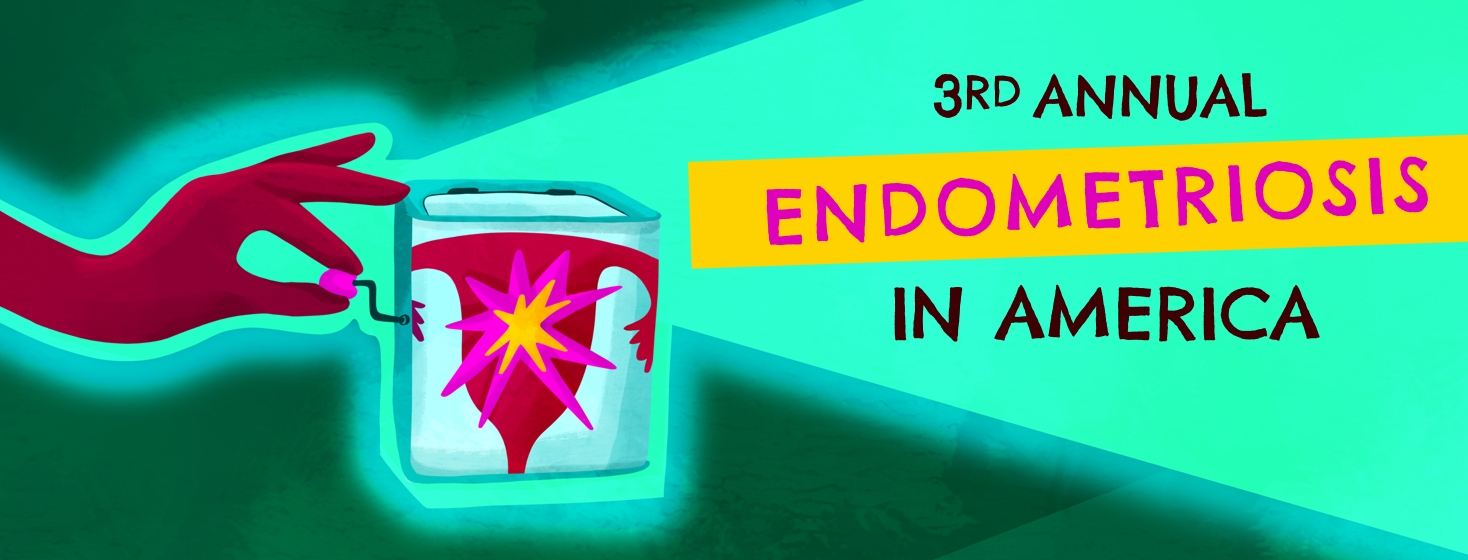
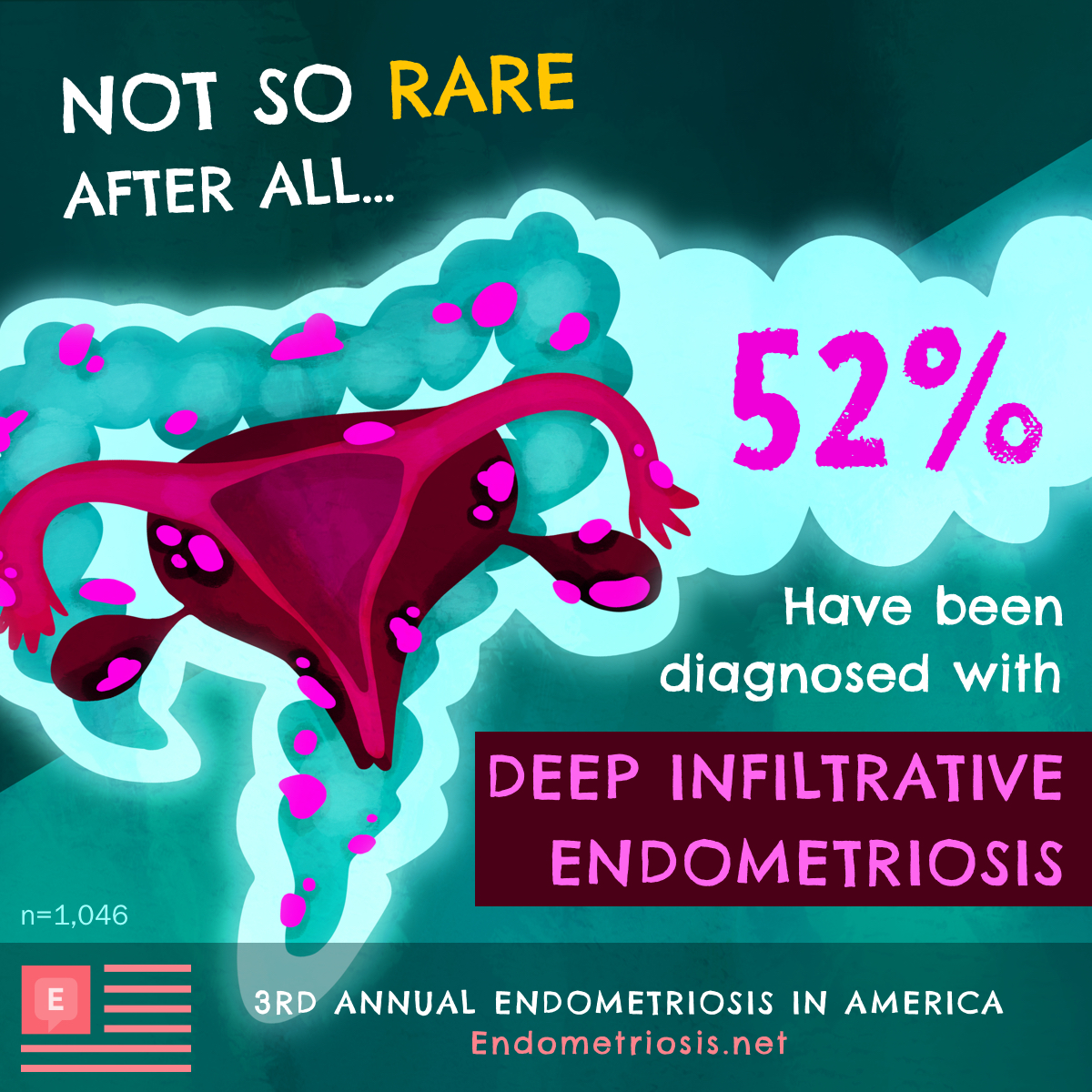
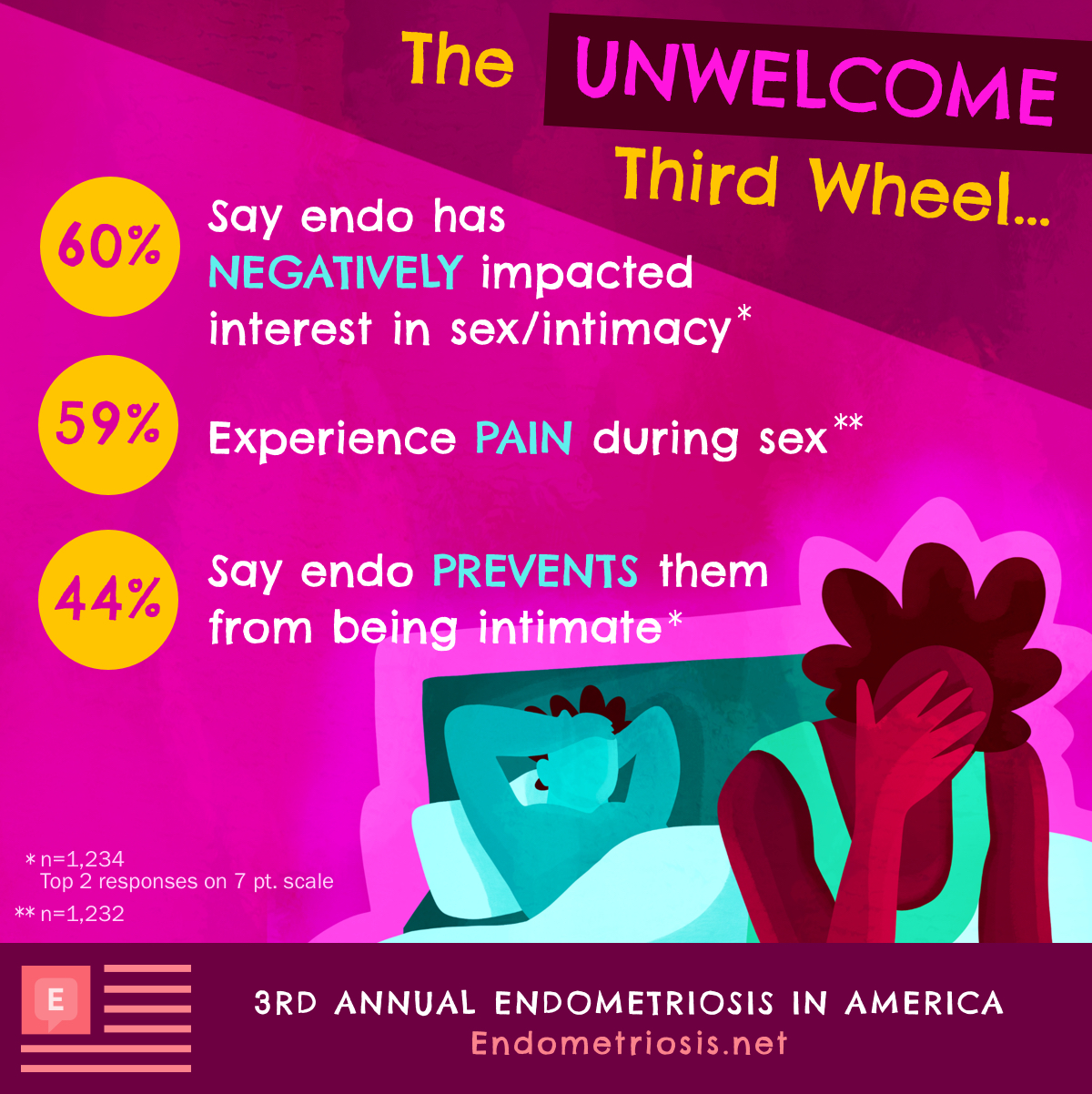
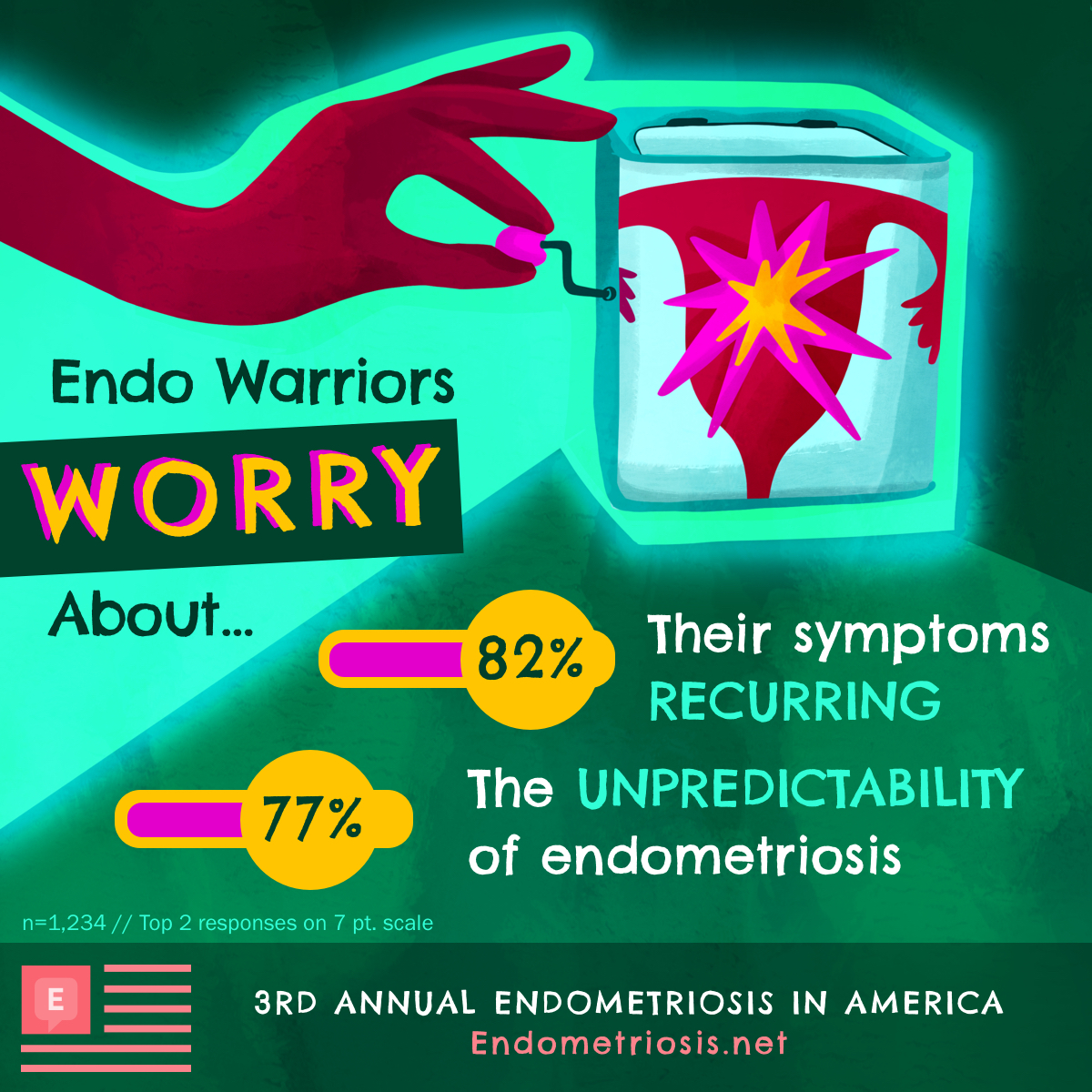
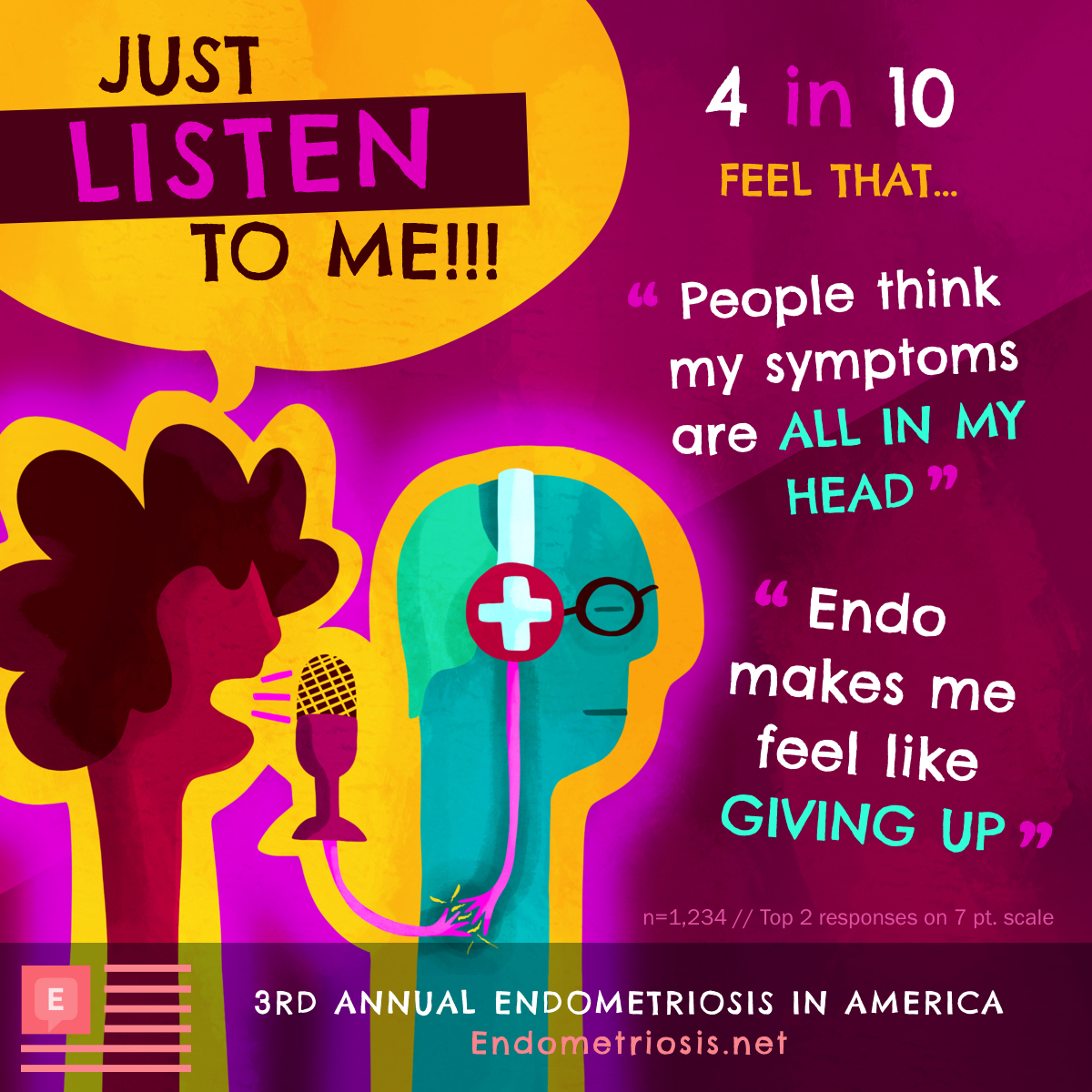
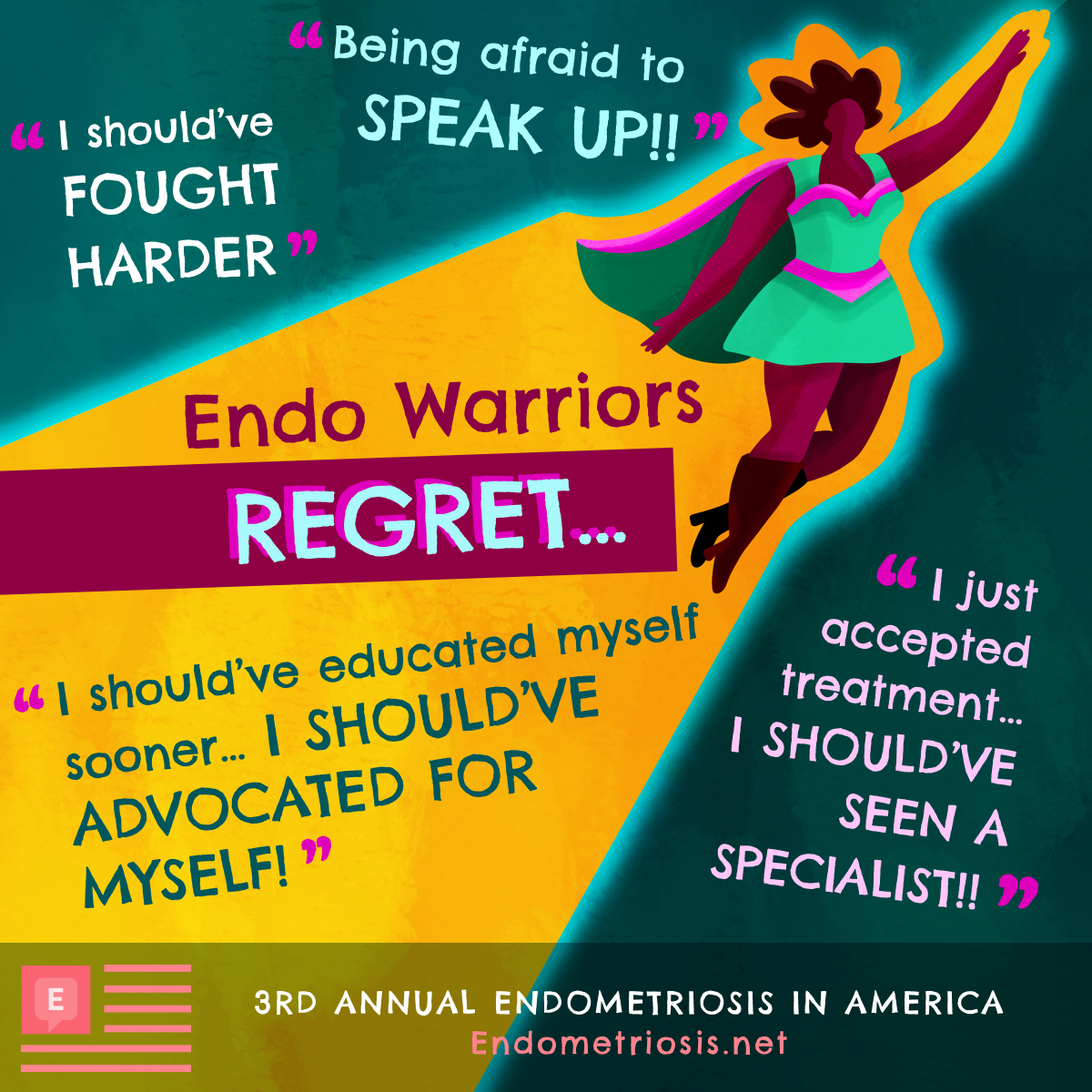
Join the conversation